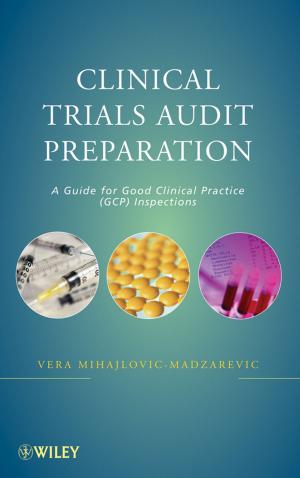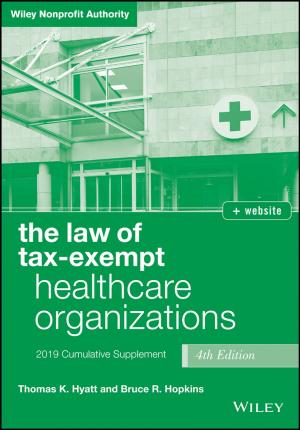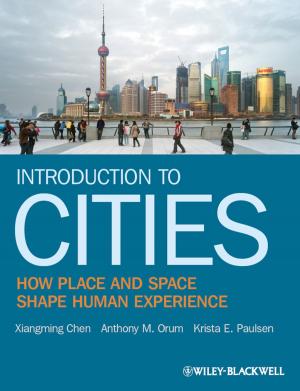Antimicrobial Resistance in the Environment
Nonfiction, Science & Nature, Science, Biological Sciences, Environmental Science| Author: | Patricia L. Keen, Mark H. M. M. Montforts | ISBN: | 9781118156230 |
| Publisher: | Wiley | Publication: | November 30, 2011 |
| Imprint: | Wiley-Blackwell | Language: | English |
| Author: | Patricia L. Keen, Mark H. M. M. Montforts |
| ISBN: | 9781118156230 |
| Publisher: | Wiley |
| Publication: | November 30, 2011 |
| Imprint: | Wiley-Blackwell |
| Language: | English |
Examines effects of the environmental distribution of antimicrobial resistance genes on human health and the ecosystem
Resistance genes are everywhere in nature—in pathogens, commensals, and environmental microorganisms. This contributed work shows how the environment plays a pivotal role in the development of antimicrobial resistance traits in bacteria and the distribution of resistant microbial species, resistant genetic material, and antibiotic compounds. Readers will discover the impact of the distribution in the environment of antimicrobial resistance genes and antibiotics on both the ecosystem and human and animal health.
Antimicrobial Resistance in the Environment is divided into four parts:
- Part I, Sources, including ecological and clinical consequences of antibiotic resistance by environmental microbes
- Part II, Fate, including strategies to assess and minimize the biological risk of antibiotic resistance in the environment
- Part III, Antimicrobial Substances and Resistance, including antibiotics in the aquatic environment
- Part IV, Effects and Risks, including the effect of antimicrobials used for non-human purposes on human health
Recognizing the intricate links among overlapping complex systems, this book examines antimicrobial resistance using a comprehensive ecosystem approach. Moreover, the book's multidisciplinary framework applies principles of microbiology, environmental toxicology, and chemistry to assess the human and ecological risks associated with exposure to antibiotics or antibiotic resistance genes that are environmental contaminants.
Each chapter has been written by one or more leading researchers in such fields as microbiology, environmental science, ecology, and toxicology. Comprehensive reference lists at the end of all chapters serve as a gateway to the primary research in the field.
Presenting and analyzing the latest findings in a field of growing importance to human and environmental health, this text offers readers new insights into the role of the environment in antimicrobial resistance development, the dissemination of antimicrobial resistant genetic elements, and the transport of antibiotic resistance genes and antibiotics.
Examines effects of the environmental distribution of antimicrobial resistance genes on human health and the ecosystem
Resistance genes are everywhere in nature—in pathogens, commensals, and environmental microorganisms. This contributed work shows how the environment plays a pivotal role in the development of antimicrobial resistance traits in bacteria and the distribution of resistant microbial species, resistant genetic material, and antibiotic compounds. Readers will discover the impact of the distribution in the environment of antimicrobial resistance genes and antibiotics on both the ecosystem and human and animal health.
Antimicrobial Resistance in the Environment is divided into four parts:
- Part I, Sources, including ecological and clinical consequences of antibiotic resistance by environmental microbes
- Part II, Fate, including strategies to assess and minimize the biological risk of antibiotic resistance in the environment
- Part III, Antimicrobial Substances and Resistance, including antibiotics in the aquatic environment
- Part IV, Effects and Risks, including the effect of antimicrobials used for non-human purposes on human health
Recognizing the intricate links among overlapping complex systems, this book examines antimicrobial resistance using a comprehensive ecosystem approach. Moreover, the book's multidisciplinary framework applies principles of microbiology, environmental toxicology, and chemistry to assess the human and ecological risks associated with exposure to antibiotics or antibiotic resistance genes that are environmental contaminants.
Each chapter has been written by one or more leading researchers in such fields as microbiology, environmental science, ecology, and toxicology. Comprehensive reference lists at the end of all chapters serve as a gateway to the primary research in the field.
Presenting and analyzing the latest findings in a field of growing importance to human and environmental health, this text offers readers new insights into the role of the environment in antimicrobial resistance development, the dissemination of antimicrobial resistant genetic elements, and the transport of antibiotic resistance genes and antibiotics.















